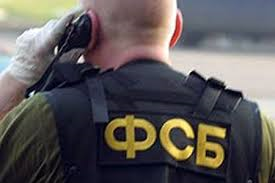Thirty percent of Russians, nearly one in three, say that they would like their children or grandchildren to serve in the security organs with almost two-thirds of those (62 percent) saying that this would guarantee them status and respect from the rest of society, according to a VTsIOM poll taken last January but released only now.
Just under half of the sample (49 percent) said that the work of the security services is a noble task, and only slightly fewer (46 percent) said that it offered the chance for high pay and good benefits (20 percent) as well as for the usual contacts it opened the way for (22 percent).
The survey also asked respondents to characterize those who work in the security services. Seventeen percent said they were intelligent and 14 percent incorruptible. They also said they were strong (8 percent), serious and restrained (6 percent), patriotic (5 percent), decisive (5 percent), and just and orderly (4 percent each).
The respondents indicated that they drew most of their conclusions about the organs from films, but they also pointed to “real political figures” like Vladimir Putin (3 percent), Sergey Shoigu (2 percent), and Yury Andropov (1 percent).
While it is entirely possible that some of these answers reflected what Russians thought they were expected to think, it is striking that so many of them have a positive image of the security services after all the revelations about the misdeeds of the KGB and its successor organs that have surfaced over the last 25 years.
And it is an indirect indication of the deference a large number of Russians are likely to show to representatives of these organs and those who have emerged from them, including most prominently Vladimir Putin who began his career as a KGB officer and who in the minds of many remains shaped by that experience.
As Bellona’s Captain Aleksandr Nikitin once put it, “there are no ex-KGB officers just as there are no ex-German shepherds.”





